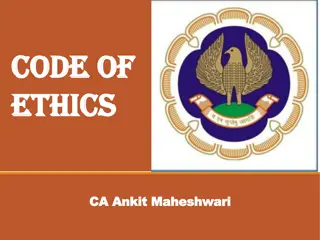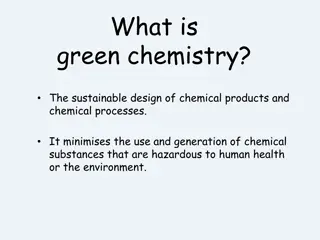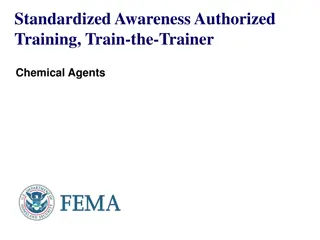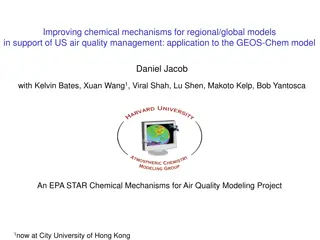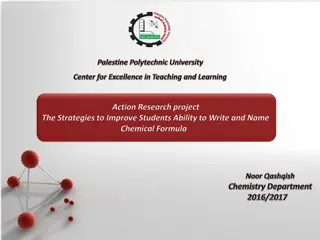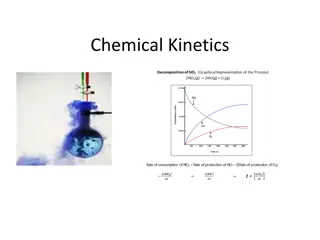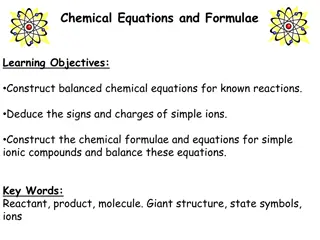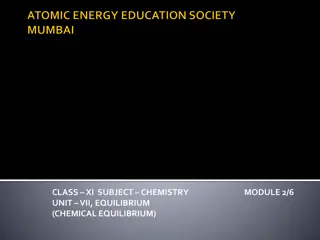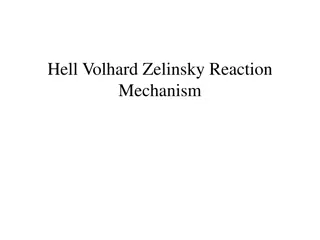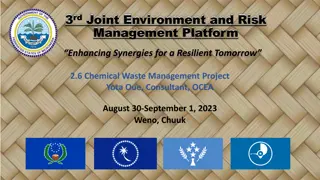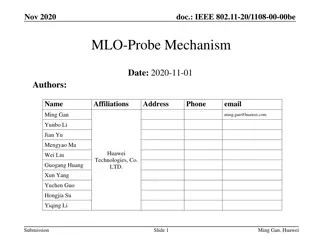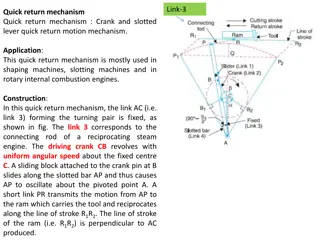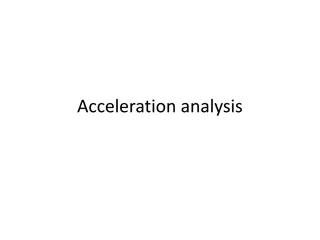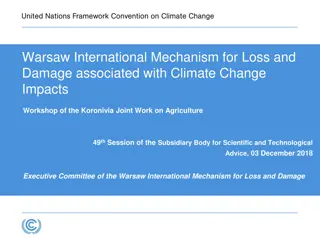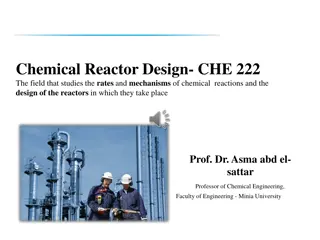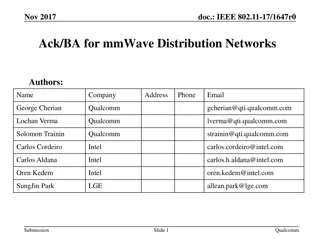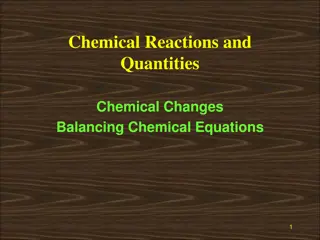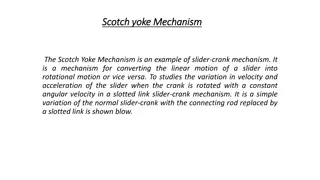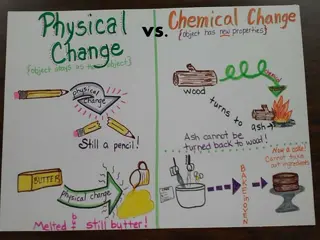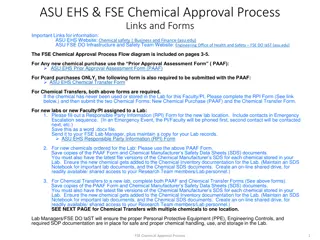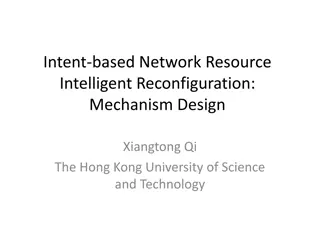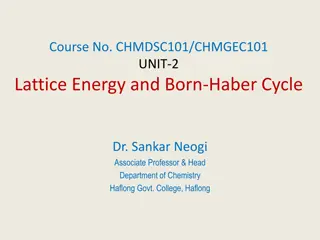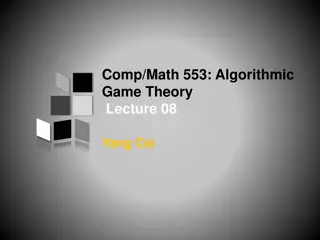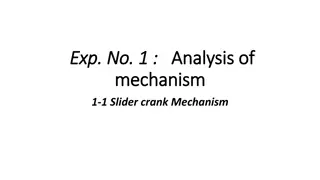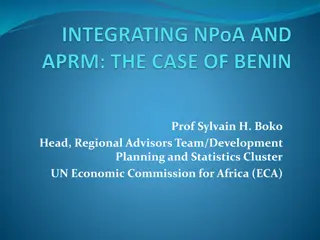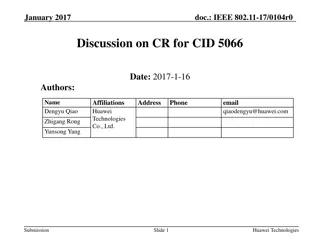Overview of Compliance, Quality Assurance, Ethics, and Disciplinary Mechanism in ICAI
This content discusses various aspects of compliance in the Chartered Accountants sector, including the Quality Assurance Mechanism, Code of Ethics, Disciplinary Mechanism, and details on who can file complaints. It also highlights the amendments in the Chartered Accountants, Cost and Works Accounta
5 views • 37 slides
Understanding the Horizon Europe Mutual Insurance Mechanism (MIM)
The Horizon Europe Mutual Insurance Mechanism (MIM) is designed to protect the financial interests of the EU budget by simplifying administrative processes and providing coverage for grants. It started with the FP7 projects and continues through Horizon Europe projects. Any grant previously covered
2 views • 14 slides
Overview of Ethics, Quality Assurance, and Disciplinary Mechanism in ICAI
This information covers the Code of Ethics, Quality Assurance Mechanism, and Disciplinary Mechanism in the Institute of Chartered Accountants of India (ICAI). It includes details on the ethical standards, peer review boards, disciplinary procedures, and who can file complaints. Additionally, it high
1 views • 37 slides
Zhejiang Supershine Household Chemical Technology Co., Ltd. - Daily Chemical Manufacturer Overview
Zhejiang Supershine Household Chemical Technology Co., Ltd. is a well-known daily chemical manufacturer in China with a focus on household cleaning products. They offer a range of products including dishwasher cleaning tablets, coffee machine cleaning tablets, and multi-effect floor cleaning tablets
0 views • 35 slides
Proposed Approach for MAC Address Assignment in IEEE 802.11
IEEE 802.1CQ is working on a mechanism to assign local MAC address blocks to end nodes specifically related to IEEE 802.11 standards. The current draft lacks a pre-association mechanism for IEEE 802.11 stations to obtain a local MAC address before association. The proposed remedy suggests specifying
6 views • 7 slides
Grievance Redress Mechanism: Enhancing Project Efficiency
Understanding the Grievance Redress Mechanism (GRM) is crucial for effective project management. This mechanism aims to address complaints and concerns related to project implementation, ensuring transparency and stakeholder engagement. By sensitizing facility GRM focal persons and following structu
4 views • 26 slides
Acetyl Chloride Manufacturer Company
Dive into the world of chemical innovation with Modi Chemical, a premier Acetyl Chloride Manufacturer in Gujarat. Explore the cutting-edge processes and stringent quality standards that define our production, ensuring excellence in every molecule. With a commitment to sustainability and technologica
4 views • 1 slides
Mono Chloro Benzene Manufacturer in Gujarat
Discover excellence in chemical manufacturing with Modi Chemical, a premier Mono Chloro Benzene Manufacturer in Gujarat. Experience top-quality products and unmatched service, meticulously crafted to meet your industrial needs. Partner with us to access cutting-edge solutions and unparalleled expert
2 views • 1 slides
Understanding Green Chemistry Principles and Efficiency in Chemical Processes
Green chemistry focuses on designing sustainable chemical products and processes to minimize hazardous substances. It advocates for waste prevention, efficient reactions, and use of raw materials. Chemical engineers play a key role in optimizing percentage yield and atom economy for efficient produc
0 views • 49 slides
Chemical Agents Awareness Training Overview
This training module covers standardized awareness and authorized training on chemical agents, including toxic industrial chemicals, riot control agents, and chemical warfare agents. Participants will learn about the physiological signs/symptoms, advantages/disadvantages of using chemical agents for
1 views • 20 slides
Understanding Chemical Formulas, Reactions, and Equations
Explore the world of chemical formulas, reactions, and equations, understanding how they identify substances and represent the composition of compounds. Learn about the significance of balanced chemical equations and the role of subscripts in indicating the number of atoms present in a molecule. Dis
1 views • 44 slides
Advancements in Chemical Mechanisms for Air Quality Management
Daniel Jacob and team have been enhancing chemical mechanisms in the GEOS-Chem model to support US air quality management. Ongoing work includes developing new mechanisms for aromatic VOCs, tropospheric halogens, mercury redox, adaptive mechanism reduction, machine learning applications, and unifica
0 views • 19 slides
Enhancing Chemical Formula Writing Skills for Students
This action research focuses on improving students' ability to write and name chemical formulas. The study addresses challenges in understanding and applying chemical concepts in a general chemistry course. Strategies include utilizing worksheets, group collaboration, and mobile applications to enha
2 views • 13 slides
Understanding Chemical Kinetics: Rates of Reactions and Factors Influencing Them
Chemical kinetics delves into the speed of chemical reactions and the factors that influence reaction rates. This field explores how collisions between atoms, ions, or molecules drive chemical reactions, as well as the role of catalysts, reactant concentration, temperature, and surface area. By unde
0 views • 32 slides
Understanding Chemical Equations and Formulae
Learn to construct balanced chemical equations for known reactions, deduce signs and charges of simple ions, and create chemical formulae for ionic compounds. Understand the concepts of reactants, products, molecules, giant structures, state symbols, and chemical formulas for various substances. Gai
3 views • 7 slides
Understanding Chemical Equilibrium in Reversible Reactions and Laws
Chemical equilibrium in reversible reactions involves the balance between forward and backward reactions, as governed by laws like the law of mass action and the law of chemical equilibrium. These laws help in understanding the rates of reactions, equilibrium constants, and the relationship between
1 views • 12 slides
Inter-Agency SEA Community Based Complaints Mechanism in Nigeria
The Inter-Agency SEA Community Based Complaints Mechanism in Nigeria facilitates safe and confidential reporting of complaints, particularly related to sexual exploitation and abuse (SEA), by beneficiaries. Through inter-agency coordination, this mechanism ensures effective collaboration, messaging,
1 views • 18 slides
Understanding the Hell-Volhard-Zelinsky Reaction Mechanism
The Hell-Volhard-Zelinsky (HVZ) reaction is a unique halogenation method for carboxylic acids at the alpha carbon, involving phosphorus tribromide and bromine. This mechanism, named after its chemists, requires severe conditions and can lead to specific products or limitations such as beta unsaturat
0 views • 8 slides
Enhancing Synergies for Resilient Tomorrow: Chemical Waste Management Project Overview
Enhancing Synergies for a Resilient Tomorrow outlines a project aimed at strengthening the Federated States of Micronesia's capacity in chemical management. The project focuses on monitoring and evaluating chemical use, enhancing legislative frameworks, and establishing a central database for chemic
1 views • 12 slides
IEEE 802.11-20/1108-00-00be MLO Probe Mechanism in AP MLD
This document discusses the design and implementation of a mechanism for a non-AP STA to send a probe request frame to an AP within an AP MLD, allowing the STA to request a probe response containing information on all APs affiliated with the same MLD as the target AP. It proposes the use of new elem
1 views • 12 slides
Understanding Quick Return Mechanism in Machinery
Exploring the application, construction, and velocity analysis of the crank and slotted lever quick return motion mechanism commonly used in shaping machines, slotting machines, and rotary internal combustion engines. The mechanism involves fixed link AC, driving crank CB, sliding block, and short l
8 views • 14 slides
Acceleration Analysis of Slider Crank Mechanism
In this analysis, we calculate the acceleration of the slider at point B, acceleration of point E, and the angular acceleration of the link AB in a slider crank mechanism. The steps involve drawing configuration, velocity, and acceleration diagrams with suitable scales to determine the necessary par
0 views • 12 slides
Warsaw International Mechanism for Loss and Damage: Addressing Climate Change Impacts
The Warsaw International Mechanism for Loss and Damage focuses on addressing climate change impacts, including extreme events and slow-onset events, in vulnerable developing countries. Through its Executive Committee, the mechanism aims to enhance dialogue, understanding, and action to support those
2 views • 11 slides
Advancements in Chemical Mechanisms for Aerosol Effects in WRF/Chem Model
This study focuses on the development of a new chemical mechanism in the Weather Research and Forecasting with Chemistry (WRF/Chem) model to address the underestimation of carbonaceous aerosols. The RACM/MADE/SOA-VBS mechanism incorporates advancements in gas-phase chemistry and particle parameteriz
0 views • 12 slides
Overview of Chemical Reactor Design and Operation
Chemical reactor design involves studying the rates and mechanisms of chemical reactions, as well as the design of reactors for these reactions on a commercial scale. This field combines principles from thermodynamics, chemical kinetics, fluid mechanics, mass transfer, heat transfer, and economics t
0 views • 12 slides
Acknowledgment Mechanism for mmWave Distribution Networks
This document discusses the proposal for an Acknowledgment (Ack) and Block Acknowledgment (BA) mechanism for Time Division Duplex (TDD) Channel Access in mmWave Distribution Networks. The requirements for sending Ack/BA in different slot structures to accommodate various traffic profiles are outline
1 views • 12 slides
Understanding Chemical Changes and Reactions
Explore the concepts of chemical and physical changes, including balancing chemical equations, physical properties, and examples of chemical reactions. Learn to distinguish between physical and chemical changes through visual aids and learning checks.
0 views • 24 slides
Understanding The Scotch Yoke Mechanism: Experiment and Analysis
The Scotch Yoke Mechanism is a slider-crank mechanism that converts linear motion into rotational motion or vice versa. This experiment involves studying the velocity, acceleration, and displacement of a slider as the crank is rotated with constant angular velocity in a slotted link slider-crank mec
0 views • 5 slides
Understanding Physical and Chemical Changes in Science Class
Explore the concepts of physical changes and chemical reactions in this interactive science lesson. Students will differentiate between the two types of changes, identify evidence for each, categorize examples, and discuss key concepts with their peers at the table. Through videos and discussions, t
0 views • 21 slides
ASU EHS & FSE Chemical Approval Process Guidelines
Detailed guidelines and forms for the chemical approval process at ASU, including links to important resources, forms for new chemical purchases and transfers, responsibilities for lab managers, and procedures for chemical transfers. The process involves completing forms such as the Prior Approval A
0 views • 5 slides
Understanding Chemical Reactions in Daily Life
Understanding chemistry, particularly chemical reactions, is crucial for our daily lives. Chemical reactions involve the transformation of substances into different ones, described by reactants and products in equations. By learning about chemical equations, word equations, formula equations, and th
0 views • 15 slides
Intelligent Mechanism Design for Intent-Based Network Resource Reconfiguration
An exploration of intent-based network resource reconfiguration through intelligent mechanism design, focusing on concepts such as intent setting, abstract views of intent networks, mechanism design, network traffic control examples, system optimization, and underlying optimization strategies. Vario
0 views • 11 slides
Understanding Ionic Bonding and Lattice Energy in Chemistry
Chemical bonds play a crucial role in holding atoms together in molecules. This course explores the concept of chemical bonding, focusing on ionic bonds and lattice energy. Topics covered include the different types of chemical bonds, such as electrovalent and coordinate bonds, as well as the models
0 views • 22 slides
Mechanism Design and Auction Theory in Game Economics
Today's lecture covers the concepts of mechanism design and single-item auctions in the field of algorithmic game theory. Mechanism design focuses on reverse-engineering existing game systems to achieve desired objectives, while auctions play a crucial role in various scenarios such as online market
0 views • 30 slides
Best Practices for Chemical Hygiene and Safety in Laboratories
Responsibilities of the Chemical Hygiene Officer (CHO) include implementing the Chemical Hygiene Plan (CHP), monitoring the chemical life cycle, arranging staff training, conducting safety inspections, assisting staff, and maintaining records. Principals and Science Department Heads support staff in
0 views • 18 slides
Analysis of Slider-Crank Mechanism and Experimental Data
Slider-crank mechanism analysis involves understanding the transformation of input motion into desired output motion. This mechanism consists of a crank, coupler, slider, and ground link, converting circular motion into linear motion. Experimental procedures involve setting crank angles and recordin
0 views • 6 slides
The African Peer Review Mechanism (APRM) and Benin's Progression
The African Peer Review Mechanism (APRM) is a governance mechanism voluntarily adopted by African nations to promote democracy, stability, and sustainable development. This article discusses the importance of the APRM, its stages, and Benin's progression within the mechanism, showcasing key indicato
0 views • 17 slides
Understanding Our Political Economy Through Economic Theory and Price Mechanism
Explore the intricate dynamics of political economy through neoclassical economic theory, price mechanism analysis, and the role of land as a factor of production. Delve into concepts like labor demand, capital goods, credit markets, and the limitations of the price mechanism in certain contexts. In
0 views • 30 slides
Critique of Transatlantic Trade & Investment Partnership (TTIP) and ISDS Mechanism
The content discusses the concerns and criticisms surrounding the Transatlantic Trade & Investment Partnership (TTIP) and the Investor-State Dispute Settlement (ISDS) mechanism. It highlights issues such as undemocratic practices, economic myths, impacts on workers' rights, safety regulations, clima
0 views • 44 slides
Discussion on Improving Transmission Efficiency in IEEE 802.11 TWT Mechanism
This document proposes enhancements to the IEEE 802.11 TWT mechanism to address issues related to random access Resource Units (RU) utilization. By defining a mechanism to optimize RU allocation for TWT scheduled STAs, the proposal aims to improve transmission efficiency and power saving, particular
0 views • 11 slides


